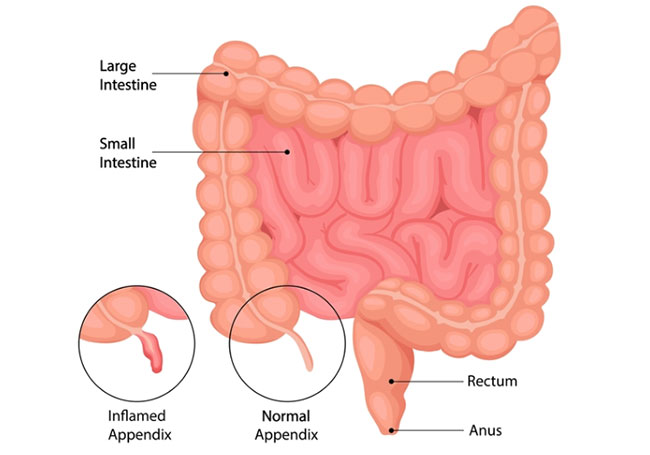E-Mail: sarveshwarreddy131@gmail.com Call Us: +91-9967575529

Appendicitis is the inflammation of the appendix, a small, tube-shaped organ attached to the large intestine. It often causes severe abdominal pain, particularly in the lower right side, and can lead to complications if not treated promptly. If the appendix becomes swollen and filled with pus, it can rupture, leading to a serious abdominal infection known as peritonitis.
Appendicitis is usually caused by an obstruction in the appendix, such as fecal matter, a foreign body, or cancer. This blockage leads to increased pressure, reduced blood flow, and bacterial infection. The exact cause of the blockage can vary, but the resultant inflammation and infection are the core issues.
Treatment for appendicitis typically involves surgery to remove the inflamed appendix, known as an appendectomy. This can be done through an open surgical method or laparoscopically, which is less invasive. In some cases, antibiotics alone may be used to treat early-stage appendicitis or if surgery poses high risks, but an appendectomy is often necessary to prevent recurrence or complications. Post-surgery, recovery usually involves pain management and a short period of rest.